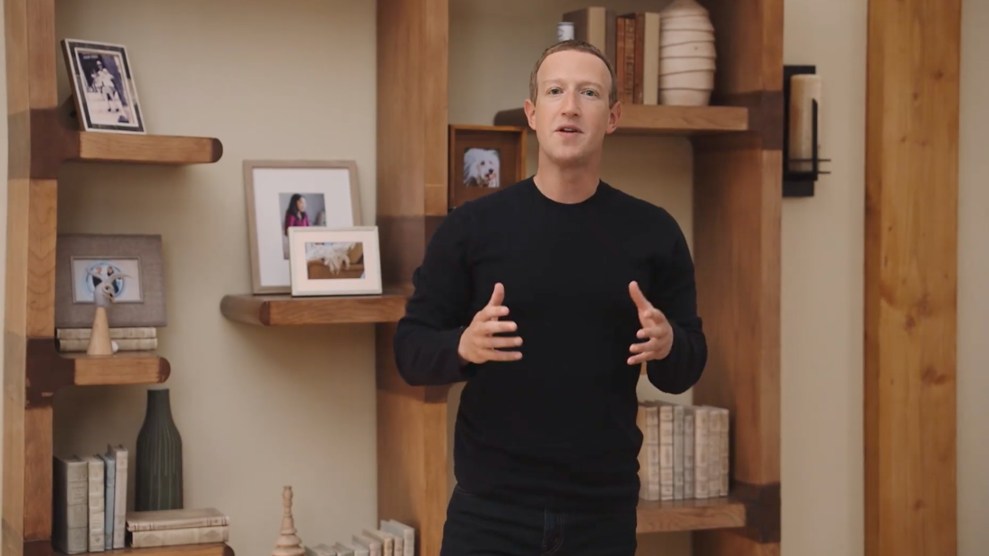
On the unlikely chance that you missed it at the end of last week, Facebook CEO Mark Zuckerberg released a 77-minute video during the company’s annual conference about virtual reality that previewed a shift for the social media giant: a new focus on the “metaverse.”
Speaking in front of a sleek background peppered with just the right ratio of wood accoutrements and, to the delight of the internet, a single bottle of barbecue sauce, he announced that Facebook would be renaming its holding company “Meta” to match its new focus on virtual and augmented reality. The rebranding comes just as Facebook is facing a series of reputational crises, from an ex-employee whistleblower to federal government efforts to break up the company.
I have…a lot of thoughts about this metaverse pivot, and they mirror a lot of what’s been said in the tech and business press already: that this may be a lot less about building the all-encompassing virtual world that Zuckerberg is pitching, and a lot more about rolling out a shiny distraction from all the controversy swirling around the company.
But one question I’m still sitting with days later is: What exactly is it that led Zuckerberg and his fellow executives to think that the way to renew enthusiasm for their beleaguered company is to give people *more* virtual interaction?
At one point in his video, Zuckerberg demonstrates his company’s vision by preparing to attend a work get-together in the metaverse. He pulls up an avatar of himself, clicks it through a series of different tech bro outfits (“Just gotta find something to wear!” he says cheerily to a hovering screen), and then enters the “meeting” where his colleagues are in their virtual forms, floating, in a room that resembles the command center of a spaceship. One of them is dressed, I gathered, as some sort of giant, red robotic bug.
Is this what most people want? The ability to attend virtual meetings as avatars drifting through a pretend corporate Death Star?
Of course not. But Facebook executives are not “most people.” Unlike many of their nearly 3 billion users, they exist in some of the most vaunted ranks of the professional managerial class. They’re among the lucky few who have spent the pandemic in gilded lifeboats, working from plush home offices, riding their Pelotons, and padding out their already ample savings. This metaverse pivot reflects their unfamiliarity with the struggles faced by most people as the last 19 months of a deadly pandemic have upended millions of jobs, homes, and bank accounts.
The wealthy-professional blinders here are so glaring that I’m not sure where to start. There’s also the premise that lots of people have the disposable income to invest in the tools necessary to access the metaverse: The Oculus headset, for instance, currently retails for between $300 and $400—while nearly half of Americans would have trouble covering a $400 emergency expense. Facebook, it should be noted, spent $2 billion to purchase Oculus in 2014, and has also deployed nearly 20 percent of its global workforce to work on augmented and virtual reality products—all while contending with the reality that the customer base for this sort of gaming is quite small: VR gaming makes up just 0.4 percent of spending on gaming, in part because it’s just too expensive.
After nearly two years of pandemic life mixed with wide frustration toward Facebook as a breeding ground for conspiracy theories about the very science that would help us get out of the pandemic faster, it’s telling that the tech titans behind the company have opted to do their reputational rehab by going all in on a virtual play world that no one really asked for, ignoring the real world in service of building up a fictional one where it’s a lot easier to gloss over big problems—and Facebook’s role in exacerbating many of them.

















